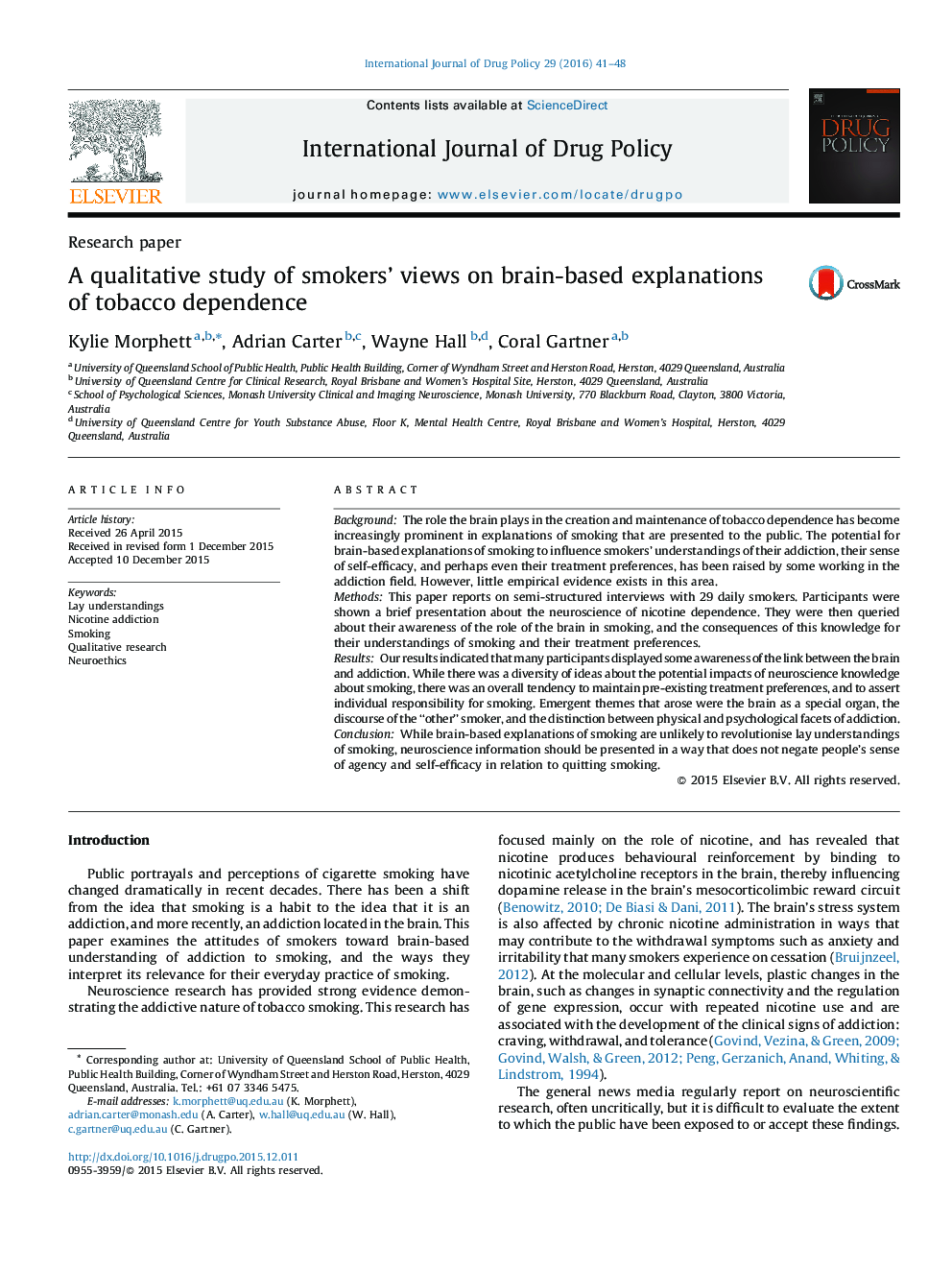| Article ID | Journal | Published Year | Pages | File Type |
|---|---|---|---|---|
| 1075030 | International Journal of Drug Policy | 2016 | 8 Pages |
BackgroundThe role the brain plays in the creation and maintenance of tobacco dependence has become increasingly prominent in explanations of smoking that are presented to the public. The potential for brain-based explanations of smoking to influence smokers’ understandings of their addiction, their sense of self-efficacy, and perhaps even their treatment preferences, has been raised by some working in the addiction field. However, little empirical evidence exists in this area.MethodsThis paper reports on semi-structured interviews with 29 daily smokers. Participants were shown a brief presentation about the neuroscience of nicotine dependence. They were then queried about their awareness of the role of the brain in smoking, and the consequences of this knowledge for their understandings of smoking and their treatment preferences.ResultsOur results indicated that many participants displayed some awareness of the link between the brain and addiction. While there was a diversity of ideas about the potential impacts of neuroscience knowledge about smoking, there was an overall tendency to maintain pre-existing treatment preferences, and to assert individual responsibility for smoking. Emergent themes that arose were the brain as a special organ, the discourse of the “other” smoker, and the distinction between physical and psychological facets of addiction.ConclusionWhile brain-based explanations of smoking are unlikely to revolutionise lay understandings of smoking, neuroscience information should be presented in a way that does not negate people's sense of agency and self-efficacy in relation to quitting smoking.
